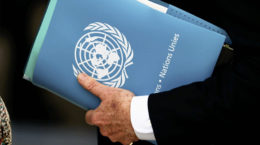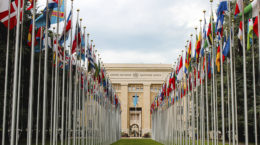At risk of “being attacked and criminally prosecuted”
José Alberto Catalão | 22 June 2024
Conscientious objectors to military service are being increasingly persecuted in Russia, Ukraine and Belarus, members of movements opposed to the war in those countries tell 7MARGENS. In the case of Belarus, around a thousand people have already been prosecuted and/or tried, while in Ukraine the Pacifist Movement is under threat of being banned. In Russia, the situation is identical, say objectors from the other two countries, but the authorities’ secrecy prevails, a secrecy common to all three countries (Russia, Ukraine and Belarus).
“Threats against Belarusian conscientious objectors have increased since the beginning of the war in Ukraine, and this is noticeable,” even from the few known statistics, says Olga Karatch, one of the most active Belarusian dissidents, who is also the founder and director of the civil rights movement “Nash Dom” (Our House). In 2023 alone, she says, around 400 criminal cases were brought for evading military service. But since the beginning of the war caused by Russia’s invasion of Ukraine, Olga Karatch says that there have already been around a thousand prosecutions. And in February of that year [2023], the death penalty for desertion was also introduced.
The Belarusian objector explains the reasons for this situation: “Firstly, there are many more young Belarusians who don’t want to join the army and are afraid of being sent to the front in Ukraine. Secondly, Belarusian legislation has started to change a lot in a repressive direction.” For example, “from February 2024, all cell phone operators were obliged to provide the military commissions and the KGB [the regime’s political police] with the telephone numbers of people subject to military service. A system of SMS notifications to the military commissions was also introduced,” the activist adds.
Previously, adds Olga Karatch, “a conscientious objector could claim some health problems and get official permission not to join the army for health reasons”. Now, this is no longer the case. “In other words, at the moment, almost everyone is conscripted into the army.”
Yurii Sheliazhenko, secretary-general of the Ukrainian Pacifist Movement, is to stand trial and his trial began on June 11 and could end with a prison sentence of up to five years. This Ukrainian objector pessimistically describes the reality experienced by those in his country who refuse to serve in the armed forces: “Conscientious objection to military service is not legally recognized, contrary to constitutional provisions and Ukraine’s international human rights obligations. Objectors like me are persecuted.”
This reality has consequences: “If you defend peace and conscientious objection, if you refuse to be registered as a potential soldier, this could end up in draconian fines, arbitrary detention and forced transportation to a military unit or a prison sentence.”
Yurii, who is also a member of the European office for conscientious objection of the World Beyond War organization, says that “the lack of a culture of peace and the punitive reaction of the state to conscientious objection result in repressions against a few consistent pacifists and a huge corruption and black market of services for the so-called evaders of conscription”. He added: “Under this absurd pretext, the Security Service of Ukraine initiated a procedure to ban the Ukrainian Pacifist Movement and criminal proceedings against me,” which began on the 11th.
On Russia, the news that reaches Olga Karatch is identical: those who oppose the war risk being attacked and criminally prosecuted. “The situation is the same everywhere. In Russia, there are raids in which young people are kidnapped and forcibly sent to the army. The legal mechanisms for protection and refusal of the army don’t work, and although the possibility of alternative service has been declared in this country, now this mechanism doesn’t work well either,” he says.
On May 15, International Day of Objects of Conscience, an action took place in Vilnius, Lithuania, near two embassies – the Russian and the Belarusian. “Nothing happened in Belarus, because you can get 5, 7, 10, 12, 20 years in prison for a protest of this kind. We only organized one action in Vilnius, Lithuania, which was attended by about 20 conscientious objectors, human rights defenders and women who support them,” Olga says.
The activist, who has a master’s degree in political science, has been involved in the fight against the oppressive regime in her country since she was young. “I’m a human rights defender and I’ve been fighting for the rights of women and children all my conscious life,” she told 7MARGENS.
Karatch heads an organization that supports Belarusian citizens in court hearings and in cases of oppression.
At the beginning of the war in Ukraine, she tells us that her main objective as an objector was to “keep the Belarusian army out of the conflict”. “It wasn’t an easy task, and President Alexander Lukashenko didn’t like the idea very much. We faced incredible pressure, including the fact that we had brought in a Lithuanian lawyer to help our conscientious objectors. After a few months, he was arrested in Lithuania because it turned out he was spying for the KGB, for the country’s political police. In other words, the Belarusian regime recruited a citizen of the European Union to spy on us peace activists!” he says.
“The objection has a clear socio-political dimension”
Yurii Sheliazhenko tells us a few more details about his journey as an objector: “My critical view of wars, armies and weapons was formed from childhood and I never took part in boys’ fights because I never wanted to make anyone feel pain. When, at the age of 17, I was forced to register with the local military commissariat, I insisted that they attach an anti-war poem I had written to my personal file. I was never conscripted, although I wouldn’t like to tell you about the challenges that such a choice entails.” And now he has a wish: “I chose the profession of lawyer to seek justice, which is necessary for reconciliation.”
Jorge Leandro Rosa, founder of the Portuguese Association of Conscientious Objectors, philosophy professor, essayist and translator, argues that objection has a clear socio-political dimension. “The objector takes a stance towards society and everything that happens in it. Of course, war is the extreme case, but the starting point of this phenomenon, as the term says, is the deepest conscience of each person.” And he adds: “It is from this need that everyone has not to get directly involved in war that the objection starts,” he says. He points out that there is a great diversity of objectors in terms of their motivations. They can be religious, ethical or political, among others. “Sometimes giving a non-violent response to violence is a possibility. Take the Gandhian liberation movement in India,” he says.
Leandro Rosa admits that the invasion of Ukraine and the war that followed it poses more difficult problems for those who refuse military service: “The situation in Ukraine is extremely serious and complex. We know how the Russian army behaves, don’t we? It’s documented. So it seems that it’s more dangerous to be non-violent than to be a violent defender. Because the non-violent is the one who somehow resists, we’re not talking about a passive or pacifist attitude.”
As an advocate of non-violence, the philosophy professor from Porto feels that he can’t advise Ukrainians to adopt the same attitude: “The imperative of justice, i.e. resisting the invader, is also part of the position of non-violence. In extreme situations like the one in Ukraine, I can’t give lessons to those who are resisting at the moment,” he says.
War and “the worst of us”
“The Russian invasion is killing our people and destroying our cities. Many power stations have been destroyed, we have power cuts and air raid alerts every day. The most horrible thing is that we are ready to respond eye for eye and wage war forever, instinctively copying the attitude of the other side,” Yurii laments. “Putin’s barbaric attack has brought out the worst in the Ukrainian mentality, growing militarism and discrimination against citizens are a threat to democracy and human rights. By preparing for the worst, by committing ourselves to war, we miss opportunities to do better and commit ourselves to a peaceful and prosperous life,” he says.
Olga fears for her safety in Belarus. “I am currently recognized in my country as a terrorist and terrorism here is punishable by death,” she says. She also confesses that she has been called an “extremist” several times by the Belarusian regime. “Lukashenko’s most important propaganda newspaper, Belarus Today, has even written about the fact that there are special firing lists where I am, which include the information that I should be shot immediately,” she adds. “I haven’t been arrested yet because I’m not in Belarus. I’m currently in Lithuania, in Vilnius. But of course the Belarusian KGB is trying to contact me in Lithuania as well. In Belarus, alternative service in the army is only for a very small segment of religious men, that is, in fact, for nobody. Refusal to serve in the army is punishable by a prison sentence of up to five years. Desertion is also punishable by death. Helping a deserter is punishable by up to five years in prison,” says Olga. “Belarusian conscientious objectors try to hide in other countries, but that doesn’t help much. Russia extradites them back, where they are sent to a Belarusian prison. “The situation is very complicated. But the more resolute we are, the more we have to protect the right of our men and women not to fight and not to take up arms,” he concludes. Despite everything, military service is not compulsory for women in Belarus, but they can of course join the army. In February 2015 (this is the latest open statistic), around 4,000 women were serving in the Belarusian army.
How to resist an armed conflict?
“We must help people suffering from the pains of war, debunk the lies behind Putin’s aggression and create the foundations of a democratically governed world without violence or with minimal violence. All this must be done without weapons, especially the preservation of hope for universal peace. When governments rely too much on violence, it is up to civil societies to expand the potential of non-violent action,” Yurii argues.
Olga believes that “the war can be stopped if men who don’t want to go to the front and who don’t want to join the army are given the opportunity to do so”. She adds: “We have to help our men not to kill and not to go to the front. I believe that together, by refusing to fight, we can stop this criminal war!”
“I know that pacifism has an important tradition, which I admire, but there are historical situations – and the present is one of them – in which resistance to the oppressor and the invader is an ethical and political imperative. Nonviolence has well understood that there is a struggle at the heart of the desire for justice and peace. The nonviolent “fight differently”, says Leandro Rosa. “By mobilizing, by repeatedly talking about what can be done. Warmongering, on the other hand, always leads to tensions building up,” he concludes.










